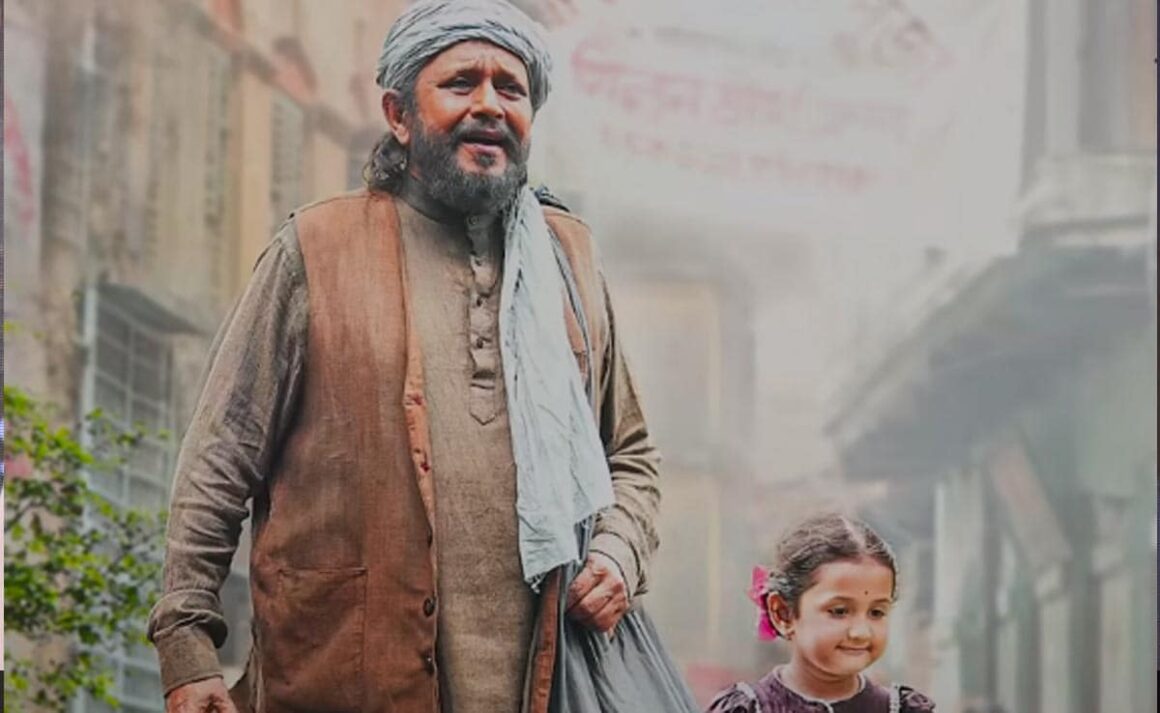
Why would a filmmaker working in Kolkata in the 21st century feel the urge to turn to a story written 130-odd years ago for creative inspiration? If that question is on your mind (it certainly wouldn’t be misplaced or unwarranted), director Suman Ghosh answers it emphatically in his adaptation of Rabindranath Tagore’s 1892 short story, Kabuliwala. The contemporary resonance of the film is unmistakable.
The last time the tale was adapted for the screen, India had been free for only ten years. Tapan Sinha’s Bengali Kabuliwala, released in 1957, was followed four years later by a Hindi version of the story directed by Hemen Gupta and produced by Bimal Roy.
Chhabi Biswas and Balraj Sahni, the two thespians who played the titular protagonist Rahmat Khan, an itinerant dry fruits seller from Afghanistan who develops a paternal bond with Mini, a girl in Calcutta who reminds him of the daughter he has left behind in his home country, are regarded among the greatest actors that Indian cinema has ever produced.
As recently as in 2018, Bioscopewala, a Hindi film starring Danny Denzongpa, updated Kabuliwala and presented Rahmat Khan as a travelling bioscope operator. The girl he would tell stories to grows up to be a documentary filmmaker based in France.
Ghosh’s new Bengali-Hindi film, produced by Shree Venkatesh Films and Jio Studios, returns to the original kernel of the Tagore story. It is set in mid-1960s Kolkata. Another screen performer of proven calibre, Mithun Chakraborty, dons Rahmat Khan’s robes and turban.
Chakraborty delivers a splendidly moving performance as a lonely man forced by an unpaid debt to leave his home in Afghanistan and travel to India. From the opening lines that he delivers – he tells a story to his daughter, Razia – to his melancholic parting words in the 106-minute film, he is an epitome of perfection.
Kabuliwala derives its undeniable strength as a story from the quality of the lead performance, but it also benefits immensely from a solid supporting cast that includes Abir Chatterjee as Mini’s writer-father Aurobindo Mukherjee and Sohini Sarkar as the girl’s mother, Sneha. Certainly not the least impressive of the cast members is, of course, child actress Anumegha Kahali. She is an instantly endearing scene-stealer.
In order to contextualise as well as universalise a displaced man’s search for love in an alien city, the screenplay by the director and Sreejib locates the story in 1965, the year of an India-Pakistan war and not the best of times from Rahmat Khan to make a living in Calcutta. Fear-mongering is rife.
Minor tweaks are made in the storyline but they do not take the focus away from the central humanist concerns of Tagore’s timeless tale. In fact, they are employed to accentuate the power of love to transcend geographical, culture, linguistic and religious divides.
Ghosh resorts to no bells and whistles in rendering a simple story of a connection forged by two souls uncorrupted by prejudice. He sticks to the basic principles of storytelling and crafts a neat package of moods, emotions and thematic emphases. Subhankar Bhar’s unobtrusive camerawork, Sujay Datta Ray’s unerring editing and composer Indraadip Dasgupta’s restrained background score and songs are in perfect sync with the film’s muted but evocative timbre.
The setting and the period are skilfully created without resorting to any showily elaborate tics. References to Indian football greats Jarnail Singh and Chuni Goswami during live radio commentary from a match on the Calcutta Maidan brings alive an era gone by and the city’s enduring romance with the beautiful game.
Superbly acted and marvellously envisioned, Kabuliwala hinges on sentiments that are gently calibrated to reflect the tensions and biases inevitably rampant in a wartime city, which stands in not just for the time and place that the film is set in but also for the era of strife and distrust that the world at large is currently passing through.
These are dark times in which people do not trust each other, Aurobindo says to his wife in reference to the biases that the latter and her household helps, including the maid Mokkoda (Gulshanara Khatun), nurture against Rahmat when his proximity to little Mini (Anumegha Kahali) grows.
Mini’s repeated question to Rahmat (What is in your bag, Kabuliwala?) assumes an added reverberation given the fragile state of the world. The amiable, God-fearing Pashtun from Jalalabad carries no baggage, but the fact that he is an outsider in a big city in the time of war, makes him a prime target of bigotry. Forces and people that he cannot fathom, let alone control, begin to impinge on his relationship with Mini.
Rahmat and his countrymen live in a cramped house in the heart of the metropolis. Constantly subjected to othering, they are compelled to limit their engagement with the city and its people to only what is absolutely essential, which in Rahmat’s case is hawking shawls, dry fruits and asafoetida and working as an agent for a moneylender.
The only unadulterated bond that he can develop in the city is with the chirpy Mini, who is innocence personified. The girl’s liberal father is able to appreciate the reason that draws Rahmat to Mini but everyone else looks upon the man with barely disguised trepidation. There are rumours that he might be a kidnapper. Some mistake him for a Pakistani.
Kabuliwala is a Mithun Chakraborty show but, given a script that retains the spirit of Tagore’s unwaveringly inclusivist worldview, there is much more to Suman Ghosh’s film than what one actor, one performance and one story bring to it. And therein lies a firm riposte to any doubt that might arise about the film’s relevance today.


Leave a Reply